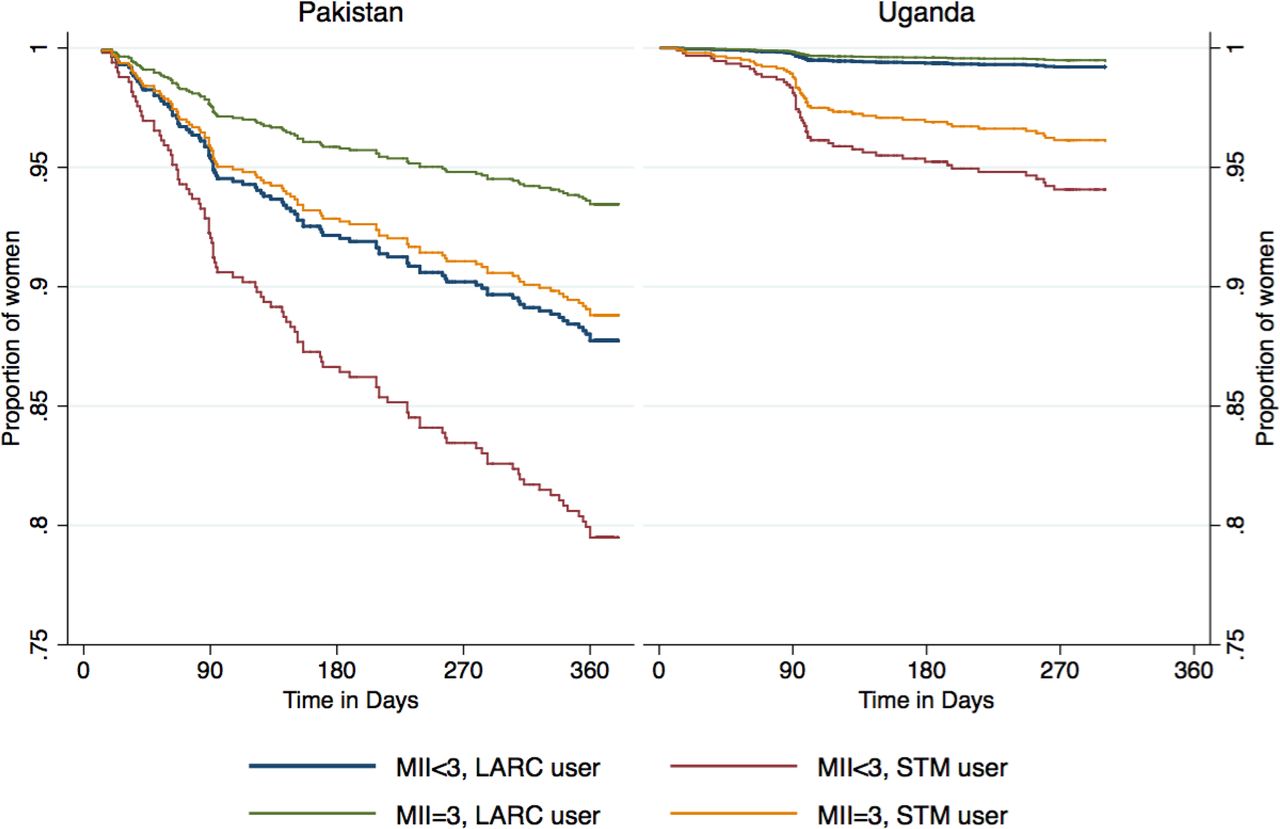What is the Method Information Index?

Here are four facts you need to know.
The Method Information Index (MII) and MIIplus are essential sources of information in family planning. Find out what the MII is, how it’s different from the MIIplus, and what both can (and can’t) tell us about the quality of reproductive health counseling.
Executive Summary: The MII and MIIplus are sets of “yes or no” questions. They are used to measure several domains of quality of care in family planning. The reported value for MII and MIIplus is the percent of women who responded “yes” to all questions. Women who receive information in the MII and MIIplus during counseling visits are less likely to stop using their contraceptive method.
1. The Method Information Index is three questions.
The Method Information Index (or MII for short) is a set of three questions. Clients are asked at the end of a contraceptive counseling visit:
- Were you informed about other methods of family planning?
- Were you informed about possible side effects or problems you might have with the method?
- Were you told what to do if you experience any side effects or problems?
The reported MII value (or “score”) is the percent of women who responded “yes” to all three questions. If a client answers yes to all three, the assumption is that she and her provider discussed essential information, and that she’s able to select a contraceptive method that meets her needs based on an understanding of all of her options.
This chart shows the MII score for all FP2020 countries, by method, as well as overall average for all FP2020 countries with available data.

If you want to know country-specific data, you can access it at http://www.familyplanning2020.org/measurement-hub#country-data
2. Family Planning 2020 created the MII as we know it.
Demographic and Health Surveys (DHS) have included the three MII questions since 1997. After forming in 2012, Family Planning 2020 (FP2020) packaged the questions together to form the MII. It is now one of FP2020’s core indicators. It’s also used in Performance, Monitoring, and Accountability (PMA) surveys.
3. The MII is sometimes used as a proxy for other indicators.
The MII can be used to measure informed choice. Its questions measure whether a woman received complete information about her options when she selected a contraceptive method. The MII can also help predict whether women will continue their method.
Some family planning professionals consider the MII to be a proxy for quality of care. Others disagree. They note that the MII can’t fully capture quality since it only assesses two of the four domains of quality of care. Also, MII questions are asked during exit interviews at the clinic or in household surveys. Because it relies on self-reporting and recall of the counseling session, responses may not always be accurate.
This figure shows that higher scores on the Method Information Index (MII) was associated with continued use of family planning over 12 months.

4. The MIIplus adds a fourth question about the possibility of switching methods.
Recently, researchers at The Population Council tested adding a question about method switching to the MII. They wanted to see if it reduced the risk of modern method discontinuation. It did.
The MIIplus includes a fourth question: “Were you told about the possibility of switching to another method if the method you selected was not suitable?” With the new addition, the measurement now includes another domain of quality of care. Neither the MII nor the MIIplus (currently) measure the fourth domain: respectful care.
Want to learn more about this topic? Further reading:
- Association Between the Quality of Contraceptive Counseling and Method Continuation: Findings From a Prospective Cohort Study in Social Franchise Clinics in Pakistan and Uganda
- Adding a Question About Method Switching to the Method Information Index Is a Better Predictor of Contraceptive Continuation
- Evaluating Quality of Contraceptive Counseling: An Analysis of the Method Information Index
- Examining Progress and Equity in Information Received by Women Using a Modern Method in 25 Developing Countries
- Method Information Index, MEASURE Evaluation
- Method Information Index, Track20




